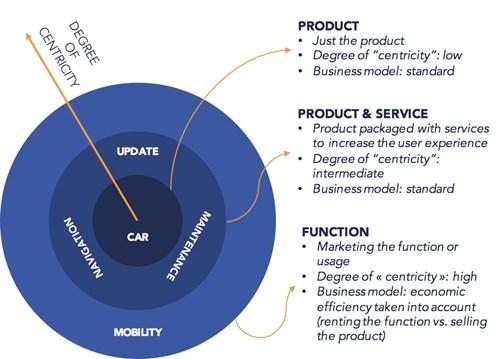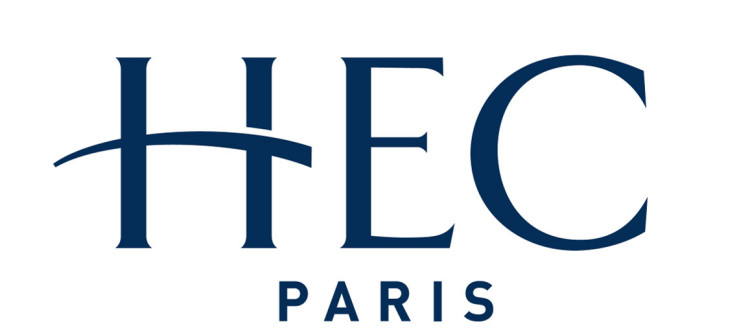- Customer Focus
Functionalization: A Key to Survival
The move away from marketing ‘products’ towards marketing ‘functions’ is a move to business sustainability
This article, co-written by Albert Meige and Nicolas Chanut, was previously published by Harvard Business Review France, titled ‘If You Want to Survive, Stop Selling Products’ .
Three trends are gradually pushing industrial organizations away from marketing products and towards marketing functions. And this ‘functionalization’ has important consequences in terms of business model, management, and technological choice.
To anticipate the (r)evolutions that will affect organizations in the medium or long term, one must identify the underlying trends that are transforming the environment in which these organizations operate. Only those whose structural characteristics are in line with this new environment will survive and develop. These companies are called open organizations, and they have a common feature: functionality.
………………………………………………………………………………………………………………………
………………………………………………………………………………………………………………………
The functional enterprise is a company, often industrial, which markets not a product, but a function. Such a company no longer sells a product that allows the customer to satisfy a need—it sells the very satisfaction of that need. The most famous French example is Michelin Fleet Solution. As part of this offer, Michelin no longer sells tyres, but kilometres travelled. The company remains the owner of the tyres; it is responsible for their installation and maintenance.
Functionality is one of the keys to future survival for organizations. And three basic trends push them in that direction.
1. Servitization
Functionality is the culmination of the process of making corporations more service-oriented—call it ‘servitization’. The term refers to the tendency of companies to package additional and complementary services with the products they market because of the increasing competition they face. The functional enterprise goes after this logic: it abandons the marketing of products as such, retains ownership of the good it produces, and sells its use. The former CTO Airbus Group explained to us that in the future, Airbus would sell no more aircraft, but instead would sell “the Airbus experience.” Certainly, in the “Airbus experience,” there is always an underlying convenience— the plane—but a set of services for the downstream value chain (for airlines, airports, passengers, etc.) is proposed along with it.
The trend toward digital transformation is also a vector of cultural transformation, accelerating the transition from servitization to functionalization: digital players understand the importance of a simple and integrated user experience. They put the customer experience at the centre of their strategy. Thus, it becomes more and more inconceivable for users to be confronted with a conventional business that would not provide a perfect experience. Only the functional enterprise allows the user to obtain such a service.

The figure above represents the degree of functionalization, and therefore of user-centricity, of a company:
- The companies of the inner circle market a product, for example a car.
- Companies in the second circle offer a range of services in addition to the product to differentiate and maximize user satisfaction: car with integrated navigation, predictive maintenance calculating the number of kilometers before the technical control, etc. In our terminology, they are service companies.
- The companies in the outer circle are the functional enterprises, which have pushed the process of servitization even further: they no longer sell cars, but they rent out their use. They sell the function, while producing the vehicles in question. In order to maximize the satisfaction of the user, the functional enterprise, unlike the service company, integrates economic efficiency for the user. The functional company takes into account the fact that selling a vehicle that is parked 90% of the time is a waste of resources. By marketing the function and not the product, it incorporates this parameter into its business model.
Digital transformation is also accelerating the functionalization of companies as a technological ‘enabler’: connected objects are used to capture data that, once analysed, make it possible to offer services such as predictive maintenance or maintenance. to achieve increased operational excellence.
3. Ecological constraints
Ecological constraints also force more and more organizations to become functional. As natural resources become scarce, functionalization is one of the ways for an organization to optimize resources. By changing perspective, remaining the owner of the product, and starting from the intention to satisfy needs—since the product itself is no longer the best way to sell a product—the functional company is encouraged to design the most robust products possible and optimize their use. Thus, the Bolloré group has an interest in doing everything to maximize the use of Autolib’ cars, in Paris.
In doing so, the functional enterprise frees itself from the dilemma faced by all other companies: that of having to choose between creating a product that will last ten years but that will be more expensive and sold in smaller quantities, and a product that will last only five years, cheaper but sold in larger quantities. The functional enterprise aligns its interest much more clearly with that of its customers. Michelin has every interest in creating the toughest tires possible. In the same way, Safechem—which no longer sells chlorinated solvents to degrease metal parts, but degreasing itself—is thereby encouraged to minimize the amount of solvents used in this process. In incentive theory, it is said that the company is the residual claimant of the improvements that it can implement—that is to say, it derives all the benefits.
The functionalization of companies has consequences in terms of business model, management, and technological choices. As functional companies sell the function rather than the underlying product, the business model is profoundly transformed, in particular changing the cash flow. In addition, new roles emerge in the functional enterprise, such as product owners, who exist at the crossroads of business, technology, and design. In addition, the functionalization of companies requires new managerial practices: the teams are small, agile, and multidisciplinary, like digital players. Finally, unlike the traditional company, which sells a product and thus has a strong incentive to generate planned obsolescence, the functional company has an incentive to maximize the life of the underlying product, since it owns that product. The choice to create a functional enterprise, therefore, has important consequences for the underlying technologies.
Even if the future of a business seems to be a functional enterprise, we must expect to see what economists call a moral hazard: users who do not own the product underlying the function tend to be less cautious exercising the function. This problem, which accelerates the degradation of the product, is not yet completely solved… But we are willing to bet that solutions will emerge.
ARTICLES YOU MIGHT LIKE
WEBINAR
Watch digital marketing and social media guru Annmarie Hanlon in this webinar that will update and upgrade the way you view and use social media in your organization
DEVELOPING LEADERS QUARTERLY MAGAZINE AND WEEKLY BRIEFING EMAILS


































